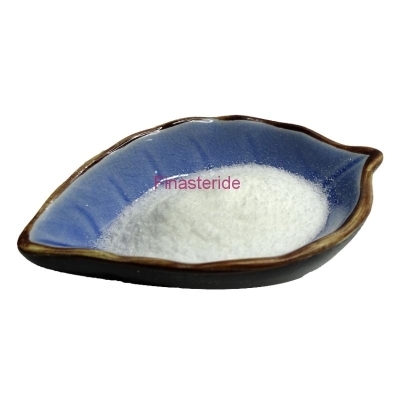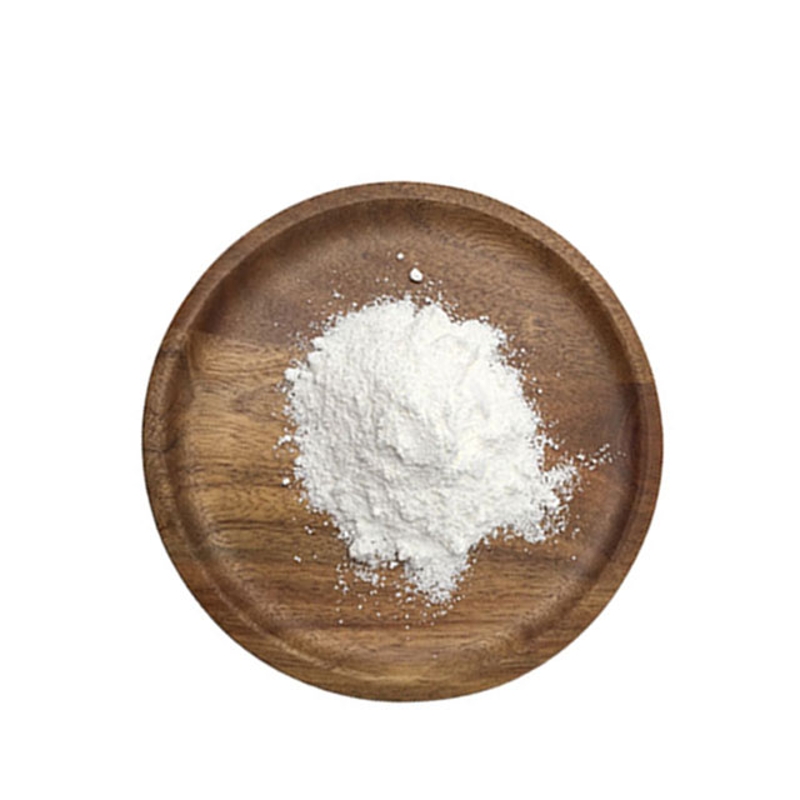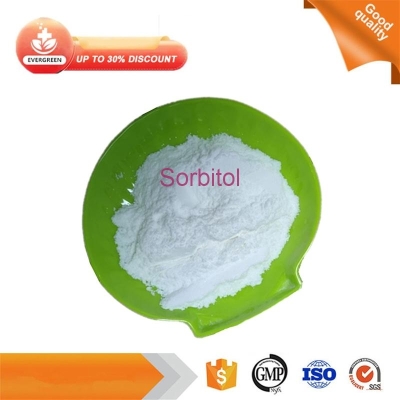-
Categories
-
Pharmaceutical Intermediates
-
Active Pharmaceutical Ingredients
-
Food Additives
- Industrial Coatings
- Agrochemicals
- Dyes and Pigments
- Surfactant
- Flavors and Fragrances
- Chemical Reagents
- Catalyst and Auxiliary
- Natural Products
- Inorganic Chemistry
-
Organic Chemistry
-
Biochemical Engineering
- Analytical Chemistry
- Cosmetic Ingredient
-
Pharmaceutical Intermediates
Promotion
ECHEMI Mall
Wholesale
Weekly Price
Exhibition
News
-
Trade Service
Prostate cancer is the second largest male malignant tumor in the world.
Compared with countries such as Europe and the United States, many prostate cancer patients in China have already entered the middle and late stages when they are diagnosed, which brings greater difficulties to treatment
.
Abiraterone acetate has been unanimously recommended by domestic and foreign guidelines for the treatment of patients with metastatic hormone-sensitive prostate cancer (mHSPC) and metastatic castration-resistant prostate cancer (mCRPC) due to its excellent efficacy
.
In order to improve the clinical diagnosis and treatment level of urological oncologists, iMaiTong invited Dr.
Li Jun from Sichuan Provincial People's Hospital and Dr.
Ding Xuefei from Jiangsu Subei People's Hospital to provide prostate cancer cases, and invited Professor Cheng Jiwen from the First Affiliated Hospital of Guangxi Medical University and Fudan University.
Professor Sun Zhongquan from East China Hospital Affiliated to the University commented for readers
.
Case 1 was a 55-year-old male with medical history
.
History of present illness: The patient was diagnosed with prostate cancer in June 2017, with a Gleason score of 4+5=9 and an unknown prostate-specific antigen (PSA)
.
Auxiliary examination in June 2017 showed: the axillary segment of the first right rib, the anterior branch of the seventh right rib, the right branch of the fifth left rib, and the right ischial punctate radioactive foci; no obvious abnormality was found in the rest of the body
.
Figure 1 ECT examination results Diagnosis of prostate adenocarcinoma, Gleason score 4+5=9 points
.
After treatment ● In June 2017, the patient was treated with traditional combined androgen blockade (CAB) after diagnosis.
In June 2019, the patient's PSA increased to 7.
14ng/mL, so he switched to the original research abiraterone acetate + prednisone + Goserelin treatment
.
Figure 2 Changes in PSA values of patients before treatment with original brand abiraterone acetate ● In June 2019, after using original brand abiraterone acetate, the patient's clinical symptoms began to improve, and PSA decreased from 7.
14ng/mL to 0.
06ng/mL, and it remained stable so far
.
Figure 3 Changes in PSA values of patients after treatment with original abiraterone acetate.
Case 2 A male, 74 years old
.
History of present illness: The patient was diagnosed with prostate cancer in November 2017, with a Gleason score of 5+4=9, and a PSA>100ng/mL
.
The auxiliary examination MR and ECT results showed that the patient had multiple bone metastases
.
Diagnosis of Prostate Cancer (T2N0M1)
.
After treatment ● In 2017, she was treated with flutamide + goserelin, and the patient's PSA data is unknown
.
● From May 2019 to April 2020, the patient was switched to bicalutamide + goserelin treatment, and the patient's PSA increased
.
Figure 4 Changes in PSA values of patients after treatment with bicalutamide ● From April to December 2020, the patient was switched to a new type of endocrine therapy, and the domestic abiraterone + prednisone regimen was selected for treatment, but the patient's PSA was not well controlled, and the PSA initially decreased and then continued to increase
.
Figure 5 Changes in PSA values of patients treated with domestic abiraterone ● From December 2020 to May 2021, the patient received docetaxel chemotherapy for 5 times, and the PSA was not relieved
.
● From May 2021 to September 2021, the patient was switched to enzalutamide + androgen deprivation therapy (ADT), but no effect was found.
Toripalimab was added in September, and the test showed that the patient's PSA>1000ng/ mL, indicating that the treatment effect is not good
.
● Since January 2022, the patient has been switched to olaparib + original research abiraterone acetate treatment, PSA has decreased, and the current treatment effect is good
.
Figure 6.
Case analysis of changes in PSA values after treatment with original abiraterone acetate.
In case 1 and case 2, after the patient was diagnosed with prostate cancer, CAB treatment was firstly selected, but traditional endocrine therapy was not effective in PSA control
.
After that, the patient was treated with bicalutamide, domestic abiraterone, docetaxel chemotherapy and enzalutamide successively, but the patient's condition was not controlled
.
After the two patients were finally treated with the original abiraterone acetate, the effect was obvious, the PSA was rapidly relieved and maintained stable, and the patients' condition was well controlled
.
The efficacy and safety of the original abiraterone acetate have been confirmed by a large-scale phase III clinical study.
The final results of the COU-AA-302 study showed that the median overall survival (OS) of the abiraterone group was 34.
7 months, which was significantly Better than the placebo group by 30.
3 months (HR=0.
81, P=0.
0033) 1
.
Therefore, CSCO guideline 2 recommends abiraterone acetate for post-metastasis, pre-/post-chemotherapy stages
.
Figure 7 Recommendations of CSCO guidelines for the diagnosis and treatment of post-metastatic prostate cancer In the above two cases, the original abiraterone acetate can quickly relieve the patient's PSA level
.
Therefore, for patients with advanced prostate cancer, early treatment with abiraterone acetate can bring them greater benefits
.
Case provider: Dr.
Li Jun Li Jun Deputy Chief Physician of Sichuan Provincial People's Hospital Young Member of Urology Branch of Chinese Medical Association (CUA) Member of Urology Branch of Chinese Medical Doctor Association Integrated Traditional Chinese and Western Medicine Deputy Director of Urological Oncology Branch of Sichuan Cancer Society Sichuan Province Youth Vice Chairman of the Urology and Andrology Society of the Anti-Cancer Association Secretary of the Oncology Group of the Urology Branch of the Sichuan Medical Association Young Member of the Andrology Branch of the Sichuan Medical Association Deputy Director of the Prostate Cancer Group of the Urology Branch of the Chengdu Medical Association Deputy Head of the Urological Oncology Group of the Integrative Medicine Branch of the Chengdu Anti-Cancer Association Comments For the treatment of advanced prostate cancer, traditional endocrine therapy cannot completely suppress androgens.
Therefore, high-risk mHSPC patients progress rapidly after treatment.
How to inhibit the disease progression of mHSPC patients is a clinical challenge.
.
As a new endocrine therapy drug, abiraterone acetate can completely inhibit the CYP17 enzyme, completely block the production of testosterone, and continuously remove the "fuel" of prostate cancer tumor progression, thereby delaying tumor progression in high-risk mHSPC patients and improving survival benefits
.
Due to the high price of original brand drugs, many patients will choose generic drugs that are bioequivalent to them when choosing a treatment drug
.
According to the requirements of the World Health Organization (WHO), the bioavailability of the generic drug is within 80%~125% of the bioavailability of the original drug, and both are considered to be bioequivalent, but the bioequivalence will be determined in principle.
This leads to differences in the bioavailability of the two, and will lead to greater differences in bioavailability between generic drugs, so bioequivalence ≠ clinical equivalence 3
.
In the above two cases, the patient first chose the generic drug, and then chose the original brand of abiraterone acetate after the PSA was not under control.
Faster and more stable? The answer is unknown, but it can give us some inspiration.
Under the premise of conditions, it is best to use the original research abiraterone acetate
.
Commenting experts: Professor Cheng Jiwen, Professor Cheng Jiwen, Director of Guangxi Urinary System Disease Clinical Medicine Research Center, Director of Urology Department of the First Affiliated Hospital of Guangxi Medical University, doctoral tutor, member of Urology Branch of Chinese Medical Association, member of Urology Branch of Chinese Medical Doctor Association, member of Chinese Medical Doctor Association Medical Robot Member of the Chinese Medical Doctor Association Post-graduation Medical Education Surgery (urology) Professional Committee Chairman of the Guangxi Anti-Cancer Association, Director-designate of the Urogenital Oncology Professional Committee of the Guangxi Anti-Cancer Association Case 3 A 74-year-old male with a medical history, chief complaint: progressive dysuria for half a year
.
History of present illness: The patient developed dysuria half a year ago, and felt frequent urination, urgency, and no dysuria
.
Nocturia 4-5 times/night
.
Prostate biopsy performed outside the hospital suggested prostate cancer
.
Auxiliary examination outside hospital MRI: prostate mass, prostate cancer may
.
Laboratory tests: serum PSA 2.
57ng/mL
.
Prostate biopsy: prostate adenocarcinoma, Gleason score 4+4=8
.
The diagnosis was localized high-risk prostate cancer (T2bN0M0)
.
After treatment ● In 2017, laparoscopic radical prostatectomy was performed, and pT3pN0 (M+) was diagnosed after surgery
.
● In November 2017, the patient's PSA was 0.
2ng/mL, testosterone was 14.
15ng/mL, and the lowest PSA was <0.
2ng/mL; in January 2018, the PSA was 9.
87ng/mL, and testosterone was 14.
17ng/mL
.
CAB (bicalutamide + goserelin) therapy was performed
.
Figure 8 Postoperative PSA value changes ● In September 2019, the patient's re-examination of the whole body imaging showed that the facial skull, cervical spine, and thoracic spine 1-7 were concentrated, and the patient was confirmed to have entered the mCRPC stage
.
In November 2019, the patient was switched to domestic abiraterone + ADT treatment, and the PSA was well controlled.
In May 2021, the patient's PSA increased again
.
Figure 9 Changes in PSA after the patient entered the mCRPC stage ● In June 2021, according to the results of genetic testing, the patient took oral PARP inhibitor for 3 months, but the treatment effect was not good; in September 2021, the patient changed to oral abiraterone acetate After treatment, the PSA decreased significantly and the condition was well controlled
.
Figure 10 Case analysis of the patient's PSA change trend from June 2021 to the present.
This case is a case of localized high-risk prostate cancer.
For such patients, radical prostatectomy is a good choice for treatment, and adjuvant radiotherapy should be given as soon as possible after surgery + Long-term ADT treatment, but the patient and his family rejected radiotherapy and chemotherapy, so adjuvant radiotherapy was not performed postoperatively
.
After the patient was confirmed to have entered the castration-resistant prostate cancer (CRPC) stage, the cheaper domestically produced abiraterone was used first.
The initial efficacy was acceptable, but the PSA still increased after a period of treatment
.
Subsequent treatment with a PARP inhibitor was still ineffective, so I tried to use the original abiraterone acetate treatment, and the PSA was effectively controlled, and the current treatment effect was acceptable
.
Based on the unique mechanism of abiraterone acetate and the results of large RCT studies, domestic and foreign guidelines recommend abiraterone acetate as the first-line basic drug for mCRPC patients
.
Since the launch of abiraterone acetate, a total of 243 real-world research articles have been published4.
The research results of these articles all suggest that abiraterone acetate, as a first-line drug for patients with mCRPC, can effectively control the PSA of patients and prolong the overall survival of patients.
.
At present, there are 193 related studies of abiraterone acetate in the mCRPC stage, and more combined drug regimens based on abiraterone acetate are being explored, highlighting the first-line cornerstone status of abiraterone acetate in the mCRPC stage
.
Case provider: Dr.
Ding Xuefei, Associate Professor Ding Xuefei, Chief Physician, Master's Tutor, BJUI Chinese Edition Editorial Board, Jiangsu Province Fifth Phase 333 High-level Talent Training Project, Associate Professor Ding Xuefei, Chinese Physician, Chinese Physician Member of the Digital and Artificial Intelligence Group of the Urology Branch of the Association Member of the Precision Medicine Group of the Urological Oncology Committee of the China Anti-Cancer Association (CACA-GU) Member of the Oncology Group of the Urology Branch of the Jiangsu Medical Association Member of the Medical Robot Professional Committee of the Jiangsu Medical Association A member of the Jiangsu Urology Medical Quality Control Center, an expert commented on the original abiraterone acetate as an imported drug.
Many patients often refuse to use the drug because it is expensive and cannot afford the cost of treatment
.
Although generic drugs are similar in shape to original drugs, there are differences in quality
.
In addition to evidence-based medical evidence, there may be differences in the production process of generic drugs and original drugs, such as the difference in the intensity of action and metabolism of optical isomers in the drug, which can affect the process, duration and intensity of the drug in the body 5
.
The presence of process impurities in generic drugs may also reduce the efficacy of the drug and affect the stability of the drug 5
.
In this case, the patient's PSA progressed after the generic drug was applied, and the subsequent use of the original product resulted in a decrease in PSA.
Is it because the PARP inhibitor made abiraterone work again, or was it due to the difference between the generic drug and the original drug? Will the patient's preferential use of the original research abiraterone acetate delay disease progression? The answer is unknown, and we look forward to further exploration
.
Commenting experts: Professor Sun Zhongquan Professor Sun Zhongquan Chief Physician and Master's Supervisor of East China Hospital Affiliated to Fudan University Deputy Director of Urology Department of East China Hospital Affiliated to Fudan University Director of "National Drug Clinical Research Institute - Urology Professional Group" of East China Hospital, China Anti-Cancer Association Urology and Male Reproduction Head of the Cancer Precision Medicine Group Member of the Prostate Cancer Expert Committee of the Chinese Society of Clinical Oncology (CSCO) Director of the China Prostate Cancer Alliance of the Chinese Urological Society Director of the Shanghai Anti-Cancer Association Abiraterone acetate has been with us for six years
.
The above three real-world cases remind us that for patients with advanced prostate cancer, early treatment with original abiraterone acetate may be more effective, and patients should be followed up to monitor PSA at all times to better control the disease progression of patients and prolong the treatment period.
Overall survival in patients with advanced prostate cancer
.
References: 1.
Ryan CJ, et al.
Abiraterone acetate plus prednisone versus placebo plus prednisone in chemotherapy-naive men with metastatic castration-resistant prostate cancer (COU-AA-302): final overall survival analysis of a randomised, double-blind , placebo-controlled phase 3 study.
Lancet Oncol.
2015 Feb;16(2):152-60.
2.
Chinese Society of Clinical Oncology Guidelines Working Committee.
Prostate Cancer Diagnosis and Treatment Guidelines 2021.
3.
.
Northern Pharmacy.
2011;08(8):83-84.
4.
https:// Li Xingang, et al.
The difference between original research drugs and generic drugs from the perspective of clinical efficacy .
Drug Evaluation.
2013(10):12:8-21.
Editor: TZY Reviewer: Bing Xin Execution: LR







